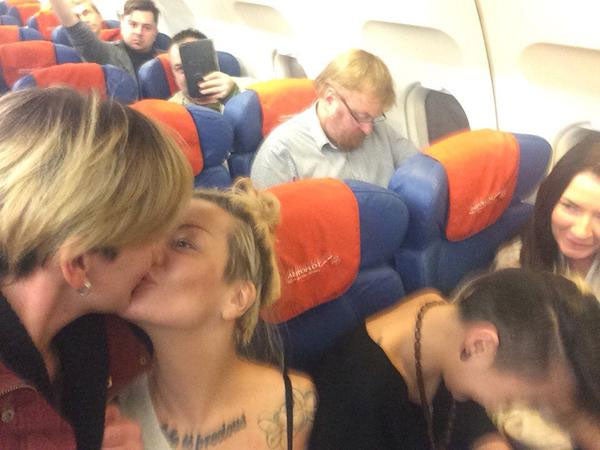International Day against Homophobia, Transphobia and Biphobia: Five reasons why we still need it
These incidents prove we still have a long way to go
Your support helps us to tell the story
From reproductive rights to climate change to Big Tech, The Independent is on the ground when the story is developing. Whether it's investigating the financials of Elon Musk's pro-Trump PAC or producing our latest documentary, 'The A Word', which shines a light on the American women fighting for reproductive rights, we know how important it is to parse out the facts from the messaging.
At such a critical moment in US history, we need reporters on the ground. Your donation allows us to keep sending journalists to speak to both sides of the story.
The Independent is trusted by Americans across the entire political spectrum. And unlike many other quality news outlets, we choose not to lock Americans out of our reporting and analysis with paywalls. We believe quality journalism should be available to everyone, paid for by those who can afford it.
Your support makes all the difference.Today international day against homophobia, transphobia and biphobia is being celebrated across the world to mark how far many societies have come to empower people of all sexualities and genders.
But on days like this it is also worth reminding ourselves how much further society has to go until the LGBTIQ community is treated equally in society.
When Britain can’t support its LGBTIQ community
Police reported last year that homophobic attacks were on the rise in London, Greater Manchester, South Wales and Northern Ireland. In one such brutal attack, Robbie Kingsford was beaten up and verbally abused in south-west London.
Meanwhile, in December a gay woman was allegedly asked to stop consoling her distraught partner in a London restaurant, and research in September revealed gay and lesbian police officers still feel they can't reveal their sexuality.
It is a similarly story for LGBT teachers, one in four of whom feel the need to hide their sexual orientation in school. More than half of Union NASUWT's members said they had experienced homophobia, bi phobia or transphobia during their teaching career.
When healthcare providers are often unfriendly or discriminatory to LGBTIQ people
An account from a Bengali man has recently revealed the stigma and oppression of living as a gay man in a conservative society, as well as the unfriendly healthcare he receives.
The man said in a first person account: "LGBT people are at a disproportionately higher risk of HIV and will continue to be so for as long as the stigma, taboos, shame and fear persist.
"Young LGBT people, in Bangladesh and elsewhere, often do not have access to the information and resources they need to be able to engage in safe sex."
When gay rights activists risk detention by police for publishing a magazine
In January it was reported that gay rights activists in Uganda had risked death threats, threats of violence and detention by the police to publish a magazine which aimed to "share the realities of being gay" in the country.
The magazine, called Bombastic, had been published by campaigners in Kampala in a bid share stories of members of the LGBTI community in the country, where homosexuality is still illegal – and the government has repeatedly tried to ban the "promotion of homosexuality".
At the time, Jacqueline Kasha, a lesbian activist and the magazine's organiser, told The Independent how police had temporarily detained Bombastic volunteers in the eastern part of the country, while members of the clergy had also threatened her with court action.
She said: "We are not journalists and I don't respect the media here in Uganda.
"The media is furious with us because we are reclaiming our stories. We expect them to retaliate. We are always frightened, but nobody else is going to stand up for us; our community needs a face."
When homophobia still apparently occurs in institutions of education
Earlier this year it was reported that one in five gay students said they had experienced bullying or harassment in school at the hand of their teachers, according to research. The research also strongly suggested that poor sex education lessons are driving a rise in the number of young gay men contracting HIV.
A college head at Oxford University has also warned this week that female students were suffering “excessively harassing and intimidating behaviour.”
When authorities respond to homosexual activity with aggression, or uphold it
The president of Gambia threatened to "slit the throats" of gay people living in the country earlier this week, in a speech about the nation's youth.
President Yahya Jammeh made the chilling threat apparently in response to Western leaders who have criticised the nation's regressive attitude to homosexuality.
Earlier this year Senator Vitaly Milonov, the architect of Russia’s anti-gay laws, threatened revenge on a lesbian pair who captured him in the background of a kiss selfie by shutting down a gay club “as a joke.”

The notoriously homophobic politician said: “This shows that these people are not of a normal sexual orientation, but that their sexual deviance shows in all aspects of their lives. I didn’t understand what they are doing but they have a nice sense of humor.”
Gay rights activists in Uganda have also risked detention by police while also facing death threats for publishing a magazine sharing the stories of the country's LGBTI community.
Join our commenting forum
Join thought-provoking conversations, follow other Independent readers and see their replies
Comments